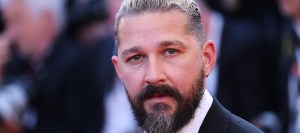A mother’s love and ability to forgive is profoundly tested when her teenage son kills her daughter. If it sounds like the beginning of a horribly detailed documentary based on a devastating real-life nightmare, that is because it is.
Charity Lee is sharing her story with the world. Her story is one of tragedy. It is one of being the mother of a child-killer — Paris Bennett, age 13 — and one of losing a daughter, Ella, age four.
Videos by PopCulture.com
The documentary The Family I Had is set to air on Investigation Discovery. As part of a press tour, Lee has been forced to open up about an incident that cost her everything she once held dear.
“I have forgiven Paris for what he did, but it’s an ongoing process,” Lee told the NYPost. “If he was free [from captivity], I would be frightened of him.
“The fact that he is incarcerated gives me peace of mind, but I worry about his own safety.”
Just over a decade ago, Lee was informed at work that her daughter was hurt. She was informed that her son, who was blessed with an IQ of 141, had convinced his babysitter that it was okay to go home early. Then she was told that her son proceeded to beat, choke, and stab her to death.
He stabbed her 17 brutal times, before calling the paramedics, and then pretending to perform CPR on her while she died.
Her son did all of that as a first part of a plan that included also killing his mother when she returned from work. The second step never happened.
“He said the first reason he didn’t go ahead with it was because it was a lot harder to kill someone than he thought,” Lee said. “The second reason was the realization if he’d killed me, I only would have suffered for five, 10, 15 minutes. But, if he left me alive [without Ella], I would suffer for the rest of my life.”
The reason for the killing, according to Lee, is that she had relapsed into heroin after kicking the habit for nearly 12 years.
Paris is now 23 and has denied psychiatric care while incarcerated.
Professionals that were assigned to his case at age 15 said that they believe him to be anti-social personality disorder (sociopathy) and his own mother said that he is narcissistic and manipulative.
In the documentary, Paris denies any mental issue and offers no defense for his crimes.
“I chose to do my crime and I take full responsibility for my crime,” he said. “And I wouldn’t say there was a predisposition to what happened.
“I’m not insane and I don’t suffer from any mental illness.”
The Family I Had peels back the layers to reveal a history previously marked by intra-family violence, illuminating the anatomy of a broken family. Multiple accounts allow for conflicting points of view, leaving the audience questioning where the ultimate truth and accountability lies in this family rocked by tragedy.
“Thematically, we’re very drawn to stories surrounding loss,” said filmmakers Katie Green and Carlye Rubin. “We saw Charity as a mother whose love and ability to forgive was profoundly tested when her son killed her daughter. After losing both of her children, she was left redefining her place in the world, and did so by retracing her family’s past. We wanted to put the audience in that uncomfortable place to challenge their preconceived notions of guilt and accountability (in the same way making this film has challenged ours) so viewers come away with a more nuanced understanding of unconditional love and forgiveness.”
A moment of clarity came to Lee in 2011 when she founded the nonprofit ELLA Foundation — an acronym representing Empathy, Love, Lessons and Action as well as the name of her daughter — which assists people involved in the criminal justice system and those affected by trauma.
“On the night that Ella died, I vowed to do something meaningful in her memory,” Lee said. “It also gave me a place to direct my rage, other than at my child.”
The documentary about the family can be viewed on the Investigation Discovery website.








